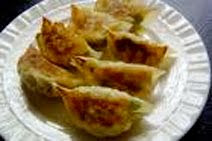


Anyone spending time in Japan is guaranteed some adventures when it comes to eating. Stay here long enough and you are going to find delight, surprise, disbelief or shock at one meal or another. I would venture to say that I have pretty much run the full gamut, have eaten some of the best, some of the worst, and a lot in between. The delights have been many (tempura, watermelon popsicles), the surprises a few (grasshoppers) and shock and disbelief enough times to make me always look twice. It took me a little while to get over on one occasion swallowing a mouthful of raw horse meat in a dimly lit dining room.
But just as people do, food changes over time, and traditional recipes and ways of preparing things become altered to fit more comfortably with the changing lifestyles of the common people. The curry and rice that people eat today is perhaps a little different from that of twenty-five years ago. (Curry is now the most popular daily dish among Japanese people.) Tastes change, and with people traveling more than they did in the past, ideas about what’s good come from places outside of Japan. How else can we explain the modern craze for mayonnaise that has swept younger Japanese? Twenty years ago it was unheard of to put canned tuna and mayonnaise in rice balls; now it’s everywhere. It would probably never occur to a Japanese grandmother to stir a big glob of mayonnaise into her salad soba (buckwheat noodles), as her grandson does.
Convenience, quick preparation and fast clean up have become just as important for young Japanese housewives as it has for their counterparts in the West. I hesitate to say most, but a good many newly married women in today’s Japan are finding new ways to cut corners in meal preparation. Changes are also influenced by evolving tastes, and interest in ingredients not traditional. How else do you explain the young mother I read about in a Japan Times article a while back who served her toddler cooked rice topped with a generous slug of Sprite? Come and get it! Or the young office worker who eschewed the traditional tsuyu (broth) and chopped onion on his noodles for a good thick dousing with chocolate sauce?
My favorite story was of the newly married young woman, who found a good way to get around the potential garlic breath which comes from eating gyoza. These are meat or vegetable dumplings which I have heard called ‘pot stickers’ in some US restaurants. They are very delicious and enjoyed by almost everyone in Japan, but only those who like garlic, and lots of it. But back to the newlywed…She decided to overcome the garlic breath problem by slipping three Tic-Tacs inside each of the dumplings while preparing them. When her husband sat down for dinner she offered him a plate of her special gyoza without a word about the secret ingredient. The first went down rather badly, but he didn’t give up and tried a second. That one did him him and he stumbled off to the bathroom, unable to hold it down. According to the article, that was enough to send him running home to mama’s dinner table.
About the photos: Most Japanese stop at a convenience store on the way to work to buy a lunch bento, or boxed lunch. The top photo shows the choices common in most stores. The second photo is a 'cute' rabbit bento probably made for a child. The bottom photo shows a typical serving of gyoza, or pot stickers, hopefully without Tic-Tacs.

I think that rabbit is going to give me nightmares and I'm 47 years old!
ReplyDelete